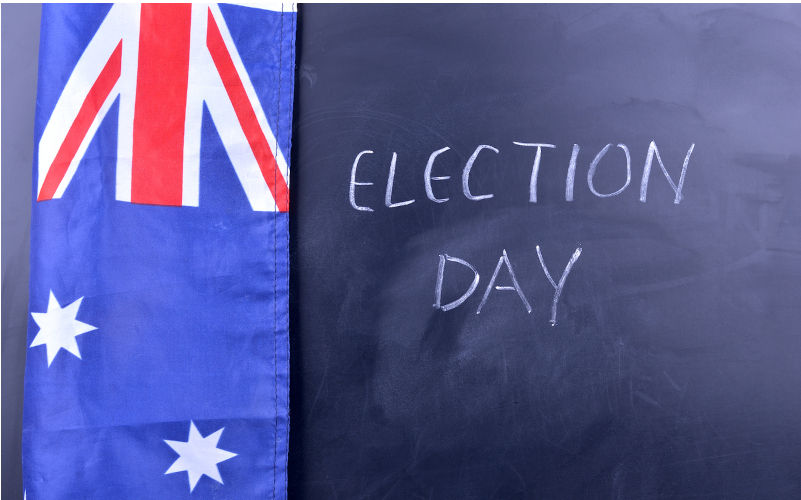With the election still somewhere between eight and 14 weeks away, it is too early to get much of a guide from the opinion polls about the probable outcome – except that a majority Liberal-National Party Government, the result most favoured by those who have already punted their money on the result with the various betting agencies, is the least likely.
The polls generally have been moving in favour of the Coalition, and on average currently have the Coalition marginally ahead – 51-49 after preferences. Were the trend in the polls over the past two months to continue and the Coalition in fact achieved a 53-47 result after preferences, it could win an outright victory.
But actually winning those additional votes won’t be easy and the most likely outcome of the election at this point is a minority government, with the Greens, the Teals and the other independents deciding whether Labor or the Coalition will form that government.
The Greens would support Labor, but which party the other cross-benchers would favour cannot be predicted at this stage. Among the current Teals, for example, some would lean towards a Coalition Government, some Labor and some would be quite uncommitted. But it is impossible to predict how many Teals will be elected at this stage and how many other independents.
If we were to be guided mainly by ‘trends’, there could be a further significant increase in the number of cross-benchers. This makes any calculations based on who is in the current parliament irrelevant.
We can be fairly sure, however, that neither Anthony Albanese nor Peter Dutton will head a government in a formal coalition with the Greens or a group of independents. And this will give the cross-bench a huge influence on what laws are passed by the parliament and on the way we would be governed.
Albanese and Dutton are equally opposed to a formal coalition. Dutton, of course, already has a coalition between the Liberals and the Nationals to manage – though he has a foot in both camps as an MP from Queensland where the two parties are formally merged. The terms of the coalition agreement between those parties are a closely held secret, covering such matters as how many ministerial positions each partner gets, which portfolios must be given to the Nationals and the extent to which ministers are free to administer those portfolios without consulting cabinet.
Labor and the Greens have tried governing in formal coalition at a state/territory level with mixed results. It proved disastrous in a brief experiment in Tasmania and although it worked reasonably well in the ACT for 12 years, both sides were content to dissolve the arrangement after the Territory election last year. In that election both Labor and the Greens lost votes (and in the case of the Greens, two seats) to independents.
While the relationship between the two parties in the ACT remains amicable, that is not the case federally. Albanese is always at pains to refer to the Greens as “the Greens political party”, presumably tarred with the same brush as other political parties. His antagonism is understandable as the Greens have long targeted his own seat in parliament, though with no chance of threatening it since the Liberals decided to preference Labor rather than the Greens more than a decade ago.
While there is bad blood between Labor and the Greens at the federal level, it is inconceivable that the Greens would do anything to support a Dutton Government – and Dutton (and everyone else) knows it. Dutton’s reaction is to disparage the notion of a Labor Government kept in power by the Greens.
He said last week, there was “no chance that Anthony Albanese can form a majority government” and that he would be forced to deal with the Greens and left-leaning teal MPs such as Monique Ryan. “Albanese can pretend otherwise. It’s a nonsense. He will say he’s not going to rule with the Greens in power, it’s complete garbage.”
The implication is that the Greens would be “in power” if Labor was forced to rely on their support. Presumably this is meant to frighten voters. However the Greens’ role as the bogeyman overstates their likely role and influence. While they will retain their crucial role in determining what legislation is passed through the Senate, and in what form, they may have very little say when it comes to the way an Albanese government governs.
In the House there are unlikely to be sufficient Greens to give Labor a majority. So both Albanese and Dutton will be trying to win the additional votes necessary to provide a majority from the ranks of the independents and the Teals.
Traditionally, those willing to pledge their support for one or other to form a government will be asked to assure the Governor-General that they will vote for confidence in the new government and for supply (that is, pass its budget and associated appropriation and supply legislation).
That is possibly asking too much of individual Teals/independents these days. They should be free to drop their support if the government they agreed to support does not keep its promises. And then support the Opposition so that there can be a change of government without the intervention of another election. That is why whichever party heads a minority government will be strongly influenced by the policies of the cross-bench – which could mean better government.
David Solomon is a former legal and political correspondent. He has degrees in Arts and Law and a Doctorate of Letters. He was Queensland Integrity Commissioner 2009-2014.

